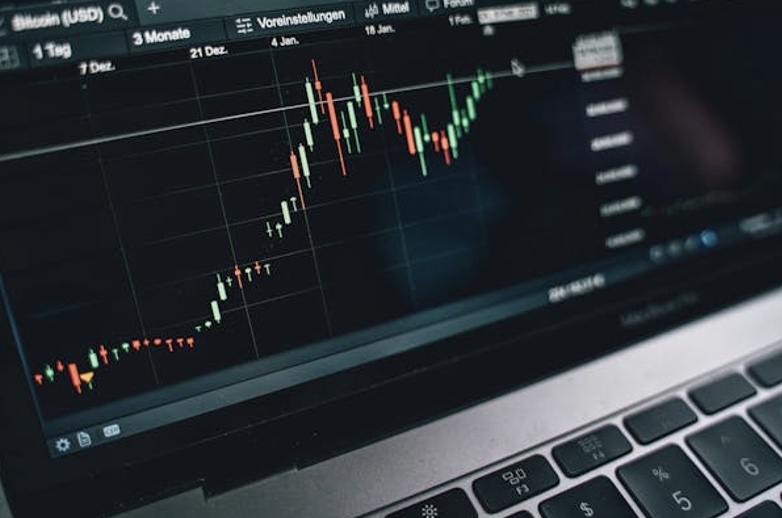Nov 13 (News On Japan) - The Japanese yen is one of the most traded currencies in the world and is a major player in forex.

Knowing its impact will give you insight into global markets and economic trends.
Here’s a quick look at how the yen fits into the forex world and why it matters.
Why is the Yen important in forex?
The Japanese yen is JPY for short, 3rd most traded currency in the world after USD and EUR.
Since Japan has one of the biggest economies, its currency is important for global trade.
The yen is so popular it’s involved in many forex trades and decisions, strategies and trends worldwide.
Yen Facts
The yen has a few unique characteristics:
1. Safe-Haven: During times of economic crisis, traders run to the yen as a "safe haven". This means they see the yen as a stable option when other markets are crazy.
2. Low Interest Rates: Japan has had low interest rates for so long so the yen is good for "carry trades" (we’ll get into this later).
3. High Volatility: The yen can move a lot due to global events or Japanese policy changes, so it’s an opportunity and a risk.
What are Yen Currency Pairs?
In forex, especially with the JM welcome bonus, currencies are traded in pairs. When trading with the yen, some of the most popular pairs are:
● USD/JPY: US dollar vs Japanese yen
● EUR/JPY: Euro vs Japanese yen
● GBP/JPY: British pound vs Japanese yen
● AUD/JPY: Australian dollar vs Japanese yen
The USD/JPY pair is the most important as it’s one of the most traded forex pairs in the world.
These pairs move based on economic news, trade policies and interest rate changes from Japan, US and other countries involved.
How the Yen impacts Global Forex
Japan’s economy and currency affects forex in many ways. Here’s why traders watch the yen:
1. Asian Market: Japan is a big player in Asia’s economy so the yen reflects the region’s trends. When the yen moves it can impact other Asian currencies especially those of Japan’s neighbours like China and Korea.
2. Global Investment Trends: Japan’s investors often look for opportunities abroad due to low domestic returns. When Japanese investors buy overseas assets, they sell yen and buy foreign currencies, which can impact exchange rates.
3. Central Bank Policies: The BOJ almost always tries to set some sort of policy to affect the value of the yen. Sometimes, this even entails intervention in the open market to stabilize the currency. Such actions can sometimes lead to sudden, sharp changes in the forex market.
The trade relations mean that Japan exports a great deal of goods to countries all over the world.
If export performance is strong, it can support the yen, whereas if the exports are weaker, depreciation can occur.
The Carry Trade and the Yen
One of the interesting things about yen trading is the “carry trade.”
In simple terms, a carry trade is when you borrow a currency with a low interest rate, like the yen, and invest in a currency with a higher interest rate.
You do it to make money on the interest rate difference.
For example, if Japan’s interest rates are low and Australia’s are high, you borrow yen and invest in Australian dollars.
This can impact the demand for the yen if many people are doing it at once. But carry trades come with risks, especially if the yen suddenly rises.
Table: Key Differences Between Yen and Other Major Currencies
| Feature | Japanese Yen (JPY) | U.S. Dollar (USD) | Euro (EUR) |
| Global Rank in Forex | 3rd | 1st | 2nd |
| Safe-Haven Status | Yes | Yes | Less Common |
| Interest Rates | Historically low | Moderate | Varies |
| Primary Trade Pair | USD/JPY | EUR/USD | EUR/JPY |
| Major Influence | Asian Market | Global | European Union |
| Volatility | High | Moderate to Low | Moderate |
Yen Trading Tips
If you’re trading the yen here are some to consider:
1. Watch the BOJ: BOJ policies have a big impact on the yen; they may ease or tighten and that’s a factor to watch.
2. Follow the News: Japan has a global economy. A natural disaster, talk of trade and policy changes all impact the yen.
3. Know your time zones: The yen is most active during Asia-Pacific hours. That’s when you see the big moves.
4. Be aware of the volatility: The yen is a wild one. Things can move fast.
Conclusion
Trading the yen can be fun and profitable but it has its own challenges. It’s a safe-haven currency and volatile so good for short-term and experienced traders.
If you’re new start with smaller trades or demo accounts to get a feel for how the yen behaves in different market conditions.
Follow Japanese news, BOJ and yen vs majors and you’ll make better trades.
I think the yen is cool.















